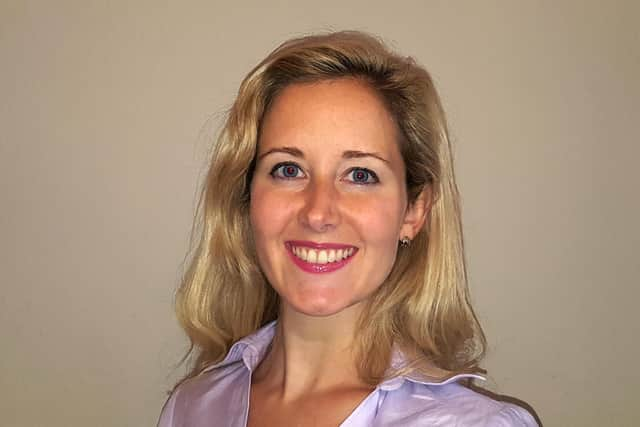Bradford-born dermatology doctor sees new business shortlisted in Brewdog Boss's Next Unicorn contest
Founded by Dr Emma Horton, Uncouth has been created to provide personalised prescription skincare products for issues such as acne and rosacea.
The Yorkshire firm, which has reached the final stage in the competition before its official launch, is set to join four other businesses heading to Las Vegas to find out if they will be given investment.
Advertisement
Hide AdAdvertisement
Hide AdThe amount given to each winning company is set to be revealed at the Las Vegas final, with a minimum of £100,000 to be given to each of the three winning businesses.


“It's a surprise because we’re super early on in the business, but that's been a nice thing, and a vote of confidence in the concept,” said Dr Horton.
Uncouth has made the final five of the competition out of more than 750 initial applicants.
Dr Horton, who now practises in Leeds, noted her hope that the business could help to free up dermatology services on the NHS.
Advertisement
Hide AdAdvertisement
Hide Ad“We hope to take some of the pressure off the NHS,” she said.
“They’re inundated with so many things, so if someone can get a prescription medication for something like acne online, rather than waiting for a GP appointment, and do it safely, quickly and effectively, that's good.
“And if this enables the NHS to focus on things arguably more life threatening like skin cancer, that's also great.”
The company’s service works through customers filling out an online medical questionnaire including a picture, which is then sent to be signed off by a pharmacist.
Advertisement
Hide AdAdvertisement
Hide AdThe business will then send out a specially formulated cream to treat the issues, combining products or lowering their strength to match the customer’s needs.
The service also works on a subscription basis, initially lasting around six months.
“Because we personalise the products, we can adjust the concentration, so if you have sensitive skin, we would then start them on a lower concentration, which you wouldn't be able to do elsewhere,” said Dr Horton.
“We have a pharmaceutical manufacturer that will mix our creams, and that's how we can personalise them and order very specific concentrations.
Advertisement
Hide AdAdvertisement
Hide Ad“If a person has acne and also has dark marks from scarring, we could put the ingredient for acne together with another ingredient which brightens the skin.
“It would be rare for even a private dermatologist to be able to do that, unless they have a specific relationship with a lab.”
Dr Horton also noted her desire to make skin treatment more widely accepted and attractive.
“If you have something like acne, and you go to get treatment from it, it's not always very pleasurable, you go in to say you have a problem and get handed an ugly tube of cream,” she said. “The idea is to make that process easier and feel more of a treat, just like if you were going to the shop for normal skin care.”